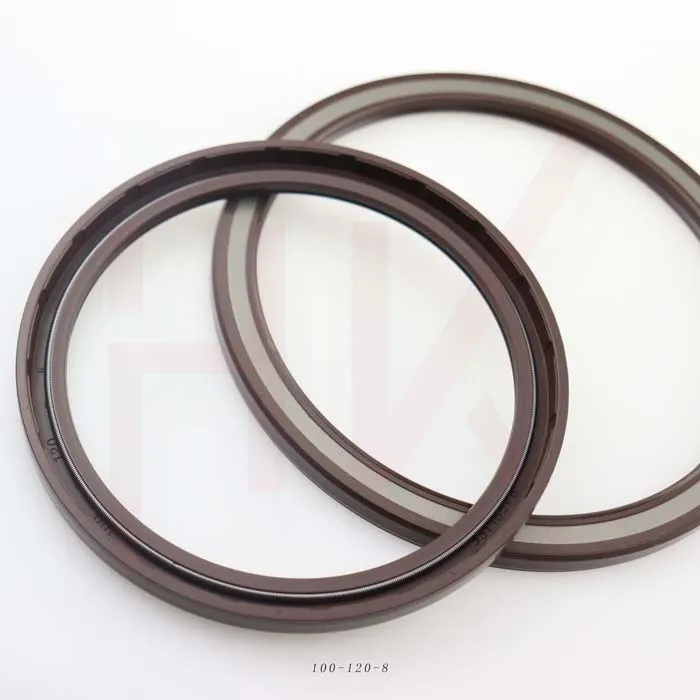Dec . 14, 2024 15:14 Back to list
Hydraulic Motor Oil Seal Design and Performance Considerations for Enhanced Efficiency
Understanding Hydraulic Motor Oil Seals Importance and Functionality
Hydraulic systems are integral to various industrial applications, providing power and motion through fluid dynamics. One crucial component in these systems is the hydraulic motor, which converts hydraulic energy into mechanical work. To ensure the efficient operation of hydraulic motors, the role of oil seals cannot be overstated. This article delves into the importance of hydraulic motor oil seals, their functionality, types, and maintenance practices.
What is a Hydraulic Motor Oil Seal?
A hydraulic motor oil seal is a sealing device designed to retain hydraulic fluid while preventing external contaminants from entering the motor. These seals are made from various materials, including rubber, elastomers, and sometimes metal, tailored to withstand the pressures and temperatures associated with hydraulic systems. The primary functions of oil seals are to minimize leakage, reduce friction, and prolong the lifespan of hydraulic components.
Importance of Oil Seals in Hydraulic Motors
1. Leak Prevention One of the most critical functions of an oil seal is to prevent hydraulic fluid from leaking. Loss of fluid not only diminishes efficiency but can also lead to system failures. This fluid loss can also pose environmental hazards, making reliable sealing essential.
2. Contamination Control Hydraulic systems operate best without contaminants. Oil seals act as barriers against dirt, dust, water, and other foreign particles that can impair performance. By keeping the internal components clean, oil seals help maintain system integrity and longevity.
3. Reduced Friction Proper sealing reduces the friction between moving parts of the hydraulic motor. This is crucial for efficient energy transfer and reduces wear on components, thereby minimizing maintenance costs and extending service life.
4. Pressure Maintenance Hydraulic systems operate under high pressure. Oil seals help maintain the required pressure within the system, ensuring optimal performance and responsiveness of hydraulic motors.
Types of Hydraulic Motor Oil Seals
There are several types of oil seals used in hydraulic motors, each designed for specific applications
1. Lip Seals These seals have a flexible lip that contacts the shaft, providing a tight seal against leakage. They are commonly used due to their ease of installation and effective sealing capabilities.
hydraulic motor oil seal

2. Ring Seals Often used in static applications, ring seals are designed to prevent fluid leakage between two stationary parts.
3. Mechanical Seals These are more complex seals that use a combination of materials and designs to provide superior sealing capabilities, particularly in high-pressure applications.
4. O-rings These circular seals offer a versatile sealing solution and are used in various configurations within hydraulic systems.
Maintenance of Hydraulic Oil Seals
To ensure the longevity and effectiveness of hydraulic motor oil seals, proper maintenance practices are essential
- Regular Inspections Frequently check seals for signs of wear and damage. Look for discoloration, cracks, or deformation that may indicate potential failure.
- Fluid Quality Use high-quality hydraulic fluids that are compatible with the seal materials to prevent degradation. Contaminated oil can hasten seal wear.
- Environmental Control Store hydraulic machinery in clean, dry conditions to reduce the risk of contamination and prolonged exposure to extreme temperatures.
- Correct Installation Proper installation of oil seals is crucial for their performance. Ensure seals are installed correctly according to manufacturer specifications to avoid premature failure.
Conclusion
Hydraulic motor oil seals are vital components in maintaining the efficiency and reliability of hydraulic systems. Their ability to prevent leaks, control contaminants, and reduce friction directly contributes to the optimal performance of hydraulic motors. By understanding their importance, types, and maintenance practices, operators can ensure the longevity and effectiveness of hydraulic systems, ultimately leading to improved productivity and reduced operational costs. Investing time in the care and selection of oil seals will not only enhance system performance but also safeguard against unexpected downtimes.
-
TCN Oil Seal Metal Ring Reinforcement for Heavy Machinery
NewsJul.25,2025
-
Rotary Lip Seal Spring-Loaded Design for High-Speed Applications
NewsJul.25,2025
-
Hydraulic Cylinder Seals Polyurethane Material for High-Impact Jobs
NewsJul.25,2025
-
High Pressure Oil Seal Polyurethane Coating Wear Resistance
NewsJul.25,2025
-
Dust Proof Seal Double Lip Design for Construction Equipment
NewsJul.25,2025
-
Hub Seal Polyurethane Wear Resistance in Agricultural Vehicles
NewsJul.25,2025
-
The Trans-formative Journey of Wheel Hub Oil Seals
NewsJun.06,2025
Products categories
















